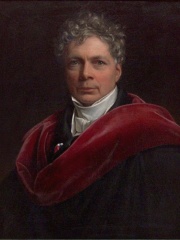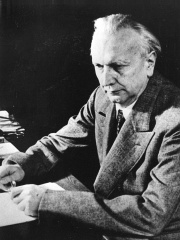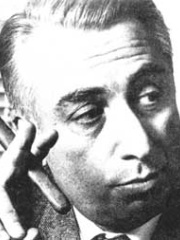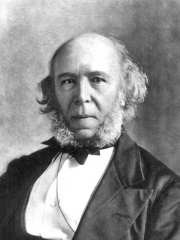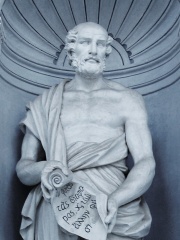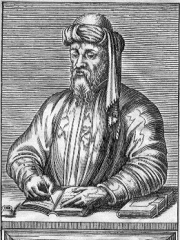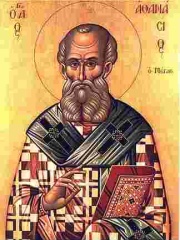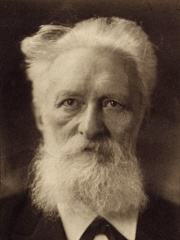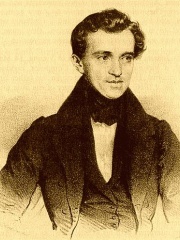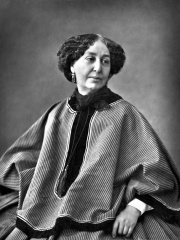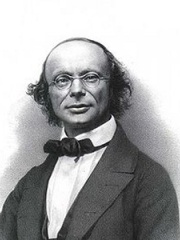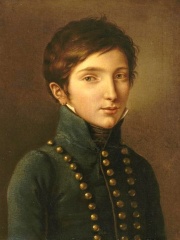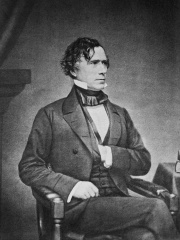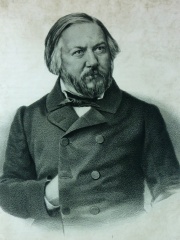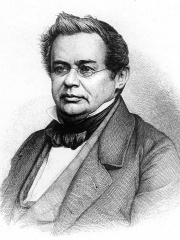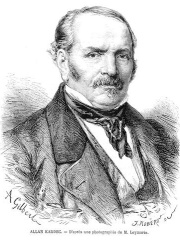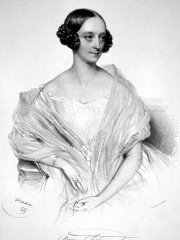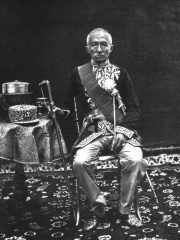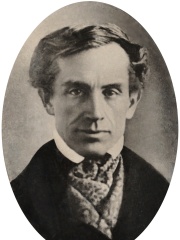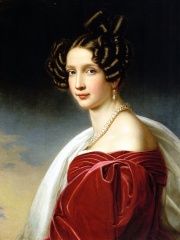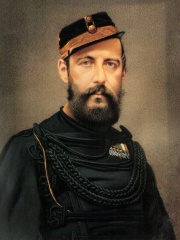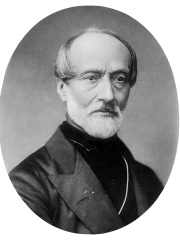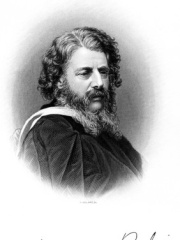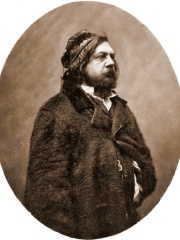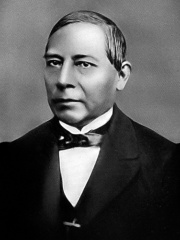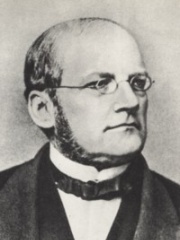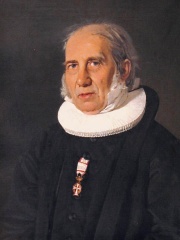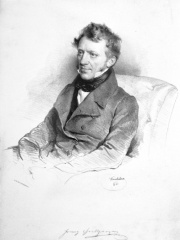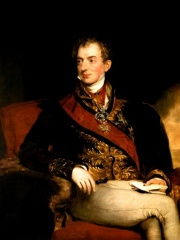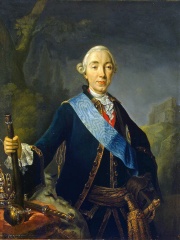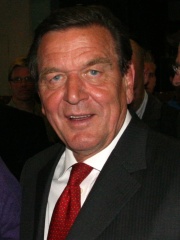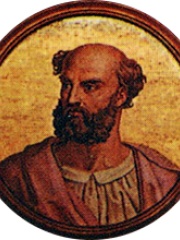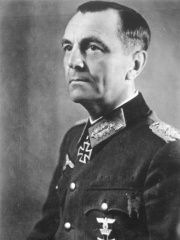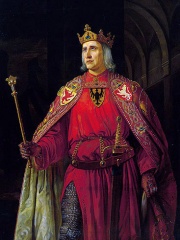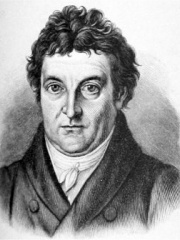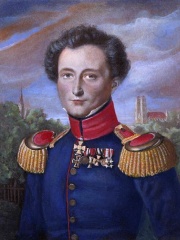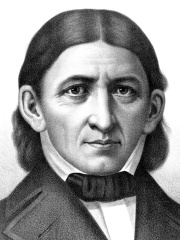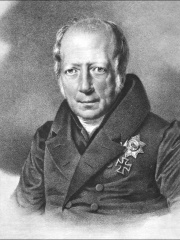Philosopher
Ludwig Feuerbach
1804 - 1872
EN.WIKIPEDIA PAGE VIEWS (PV)
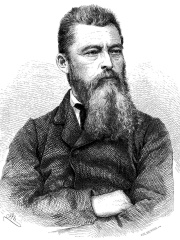
 Ludwig Feuerbach
Ludwig Feuerbach
His biography is available in 73 different languages on Wikipedia. Ludwig Feuerbach is the 84th most popular philosopher (down from 69th in 2024), the 104th most popular biography from Germany (down from 68th in 2019) and the 10th most popular German Philosopher.
Ludwig Feuerbach was most famous for the idea that God is simply a projection of human qualities.
Memorability Metrics
Page views of Ludwig Feuerbach by language
Among Philosophers
Among philosophers, Ludwig Feuerbach ranks 84 out of 1,267. Before him are Rudolf Steiner, Gregory of Nazianzus, Friedrich Wilhelm Joseph Schelling, Karl Jaspers, Roland Barthes, and Herbert Spencer. After him are Theophrastus, Porphyry, Athanasius of Alexandria, Rudolf Christoph Eucken, Giovanni Pico della Mirandola, and Jürgen Habermas.
Most Popular Philosophers in Wikipedia
Go to all RankingsRudolf Steiner
1861 - 1925
HPI: 80.38
Rank: 78
Gregory of Nazianzus
329 - 389
HPI: 80.37
Rank: 79
Friedrich Wilhelm Joseph Schelling
1775 - 1854
HPI: 80.32
Rank: 80
Karl Jaspers
1883 - 1969
HPI: 80.28
Rank: 81
Roland Barthes
1915 - 1980
HPI: 80.26
Rank: 82
Herbert Spencer
1820 - 1903
HPI: 80.25
Rank: 83
Ludwig Feuerbach
1804 - 1872
HPI: 80.22
Rank: 84
Theophrastus
371 BC - 287 BC
HPI: 80.19
Rank: 85
Porphyry
233 - 305
HPI: 80.06
Rank: 86
Athanasius of Alexandria
295 - 373
HPI: 79.92
Rank: 87
Rudolf Christoph Eucken
1846 - 1926
HPI: 79.85
Rank: 88
Giovanni Pico della Mirandola
1463 - 1494
HPI: 79.56
Rank: 89
Jürgen Habermas
1929 - Present
HPI: 79.46
Rank: 90
Contemporaries
Among people born in 1804, Ludwig Feuerbach ranks 2. Before him is Johann Strauss I. After him are George Sand, Wilhelm Eduard Weber, Napoléon Louis Bonaparte, Franklin Pierce, Benjamin Disraeli, Mikhail Glinka, Emil Lenz, Allan Kardec, Marie Taglioni, and Mongkut. Among people deceased in 1872, Ludwig Feuerbach ranks 2. Before him is Samuel Morse. After him are Princess Sophie of Bavaria, Charles XV of Sweden, Giuseppe Mazzini, William John Macquorn Rankine, Théophile Gautier, Benito Juárez, Stanisław Moniuszko, N. F. S. Grundtvig, Franz Grillparzer, and George Robert Gray.
Others Born in 1804
Go to all RankingsJohann Strauss I
COMPOSER
1804 - 1849
HPI: 80.34
Rank: 1
Ludwig Feuerbach
PHILOSOPHER
1804 - 1872
HPI: 80.22
Rank: 2
George Sand
WRITER
1804 - 1876
HPI: 77.79
Rank: 3
Wilhelm Eduard Weber
PHYSICIST
1804 - 1891
HPI: 75.43
Rank: 4
Napoléon Louis Bonaparte
POLITICIAN
1804 - 1831
HPI: 75.32
Rank: 5
Franklin Pierce
POLITICIAN
1804 - 1869
HPI: 75.02
Rank: 6
Benjamin Disraeli
POLITICIAN
1804 - 1881
HPI: 74.72
Rank: 7
Mikhail Glinka
COMPOSER
1804 - 1857
HPI: 74.38
Rank: 8
Emil Lenz
PHYSICIST
1804 - 1865
HPI: 74.36
Rank: 9
Allan Kardec
OCCULTIST
1804 - 1869
HPI: 73.24
Rank: 10
Marie Taglioni
DANCER
1804 - 1884
HPI: 73.20
Rank: 11
Mongkut
POLITICIAN
1804 - 1868
HPI: 72.56
Rank: 12
Others Deceased in 1872
Go to all RankingsSamuel Morse
INVENTOR
1791 - 1872
HPI: 80.49
Rank: 1
Ludwig Feuerbach
PHILOSOPHER
1804 - 1872
HPI: 80.22
Rank: 2
Princess Sophie of Bavaria
NOBLEMAN
1805 - 1872
HPI: 79.63
Rank: 3
Charles XV of Sweden
POLITICIAN
1826 - 1872
HPI: 78.39
Rank: 4
Giuseppe Mazzini
POLITICIAN
1805 - 1872
HPI: 77.48
Rank: 5
William John Macquorn Rankine
ENGINEER
1820 - 1872
HPI: 76.98
Rank: 6
Théophile Gautier
WRITER
1811 - 1872
HPI: 74.57
Rank: 7
Benito Juárez
POLITICIAN
1806 - 1872
HPI: 72.81
Rank: 8
Stanisław Moniuszko
COMPOSER
1819 - 1872
HPI: 70.02
Rank: 9
N. F. S. Grundtvig
WRITER
1783 - 1872
HPI: 69.71
Rank: 10
Franz Grillparzer
WRITER
1791 - 1872
HPI: 69.19
Rank: 11
George Robert Gray
BIOLOGIST
1808 - 1872
HPI: 67.72
Rank: 12
In Germany
Among people born in Germany, Ludwig Feuerbach ranks 104 out of NaN. Before him are Klemens von Metternich (1773), Karl Jaspers (1883), Rudolf Höss (1901), Peter III of Russia (1728), Charles Bukowski (1920), and Heinz Guderian (1888). After him are Pope Joan (null), Gerhard Schröder (1944), Michael Schumacher (1969), Pope Damasus II (1000), Friedrich Paulus (1890), and Rudolf I of Germany (1218).
Others born in Germany
Go to all RankingsKlemens von Metternich
POLITICIAN
1773 - 1859
HPI: 80.29
Rank: 98
Karl Jaspers
PHILOSOPHER
1883 - 1969
HPI: 80.28
Rank: 99
Rudolf Höss
POLITICIAN
1901 - 1947
HPI: 80.26
Rank: 100
Peter III of Russia
POLITICIAN
1728 - 1762
HPI: 80.24
Rank: 101
Charles Bukowski
WRITER
1920 - 1994
HPI: 80.23
Rank: 102
Heinz Guderian
MILITARY PERSONNEL
1888 - 1954
HPI: 80.22
Rank: 103
Ludwig Feuerbach
PHILOSOPHER
1804 - 1872
HPI: 80.22
Rank: 104
Pope Joan
RELIGIOUS FIGURE
HPI: 80.19
Rank: 105
Gerhard Schröder
POLITICIAN
1944 - Present
HPI: 80.17
Rank: 106
Michael Schumacher
RACING DRIVER
1969 - Present
HPI: 80.17
Rank: 107
Pope Damasus II
RELIGIOUS FIGURE
1000 - 1048
HPI: 80.13
Rank: 108
Friedrich Paulus
MILITARY PERSONNEL
1890 - 1957
HPI: 80.08
Rank: 109
Rudolf I of Germany
POLITICIAN
1218 - 1291
HPI: 80.07
Rank: 110
Among Philosophers In Germany
Among philosophers born in Germany, Ludwig Feuerbach ranks 10. Before him are Martin Heidegger (1889), Hannah Arendt (1906), Johann Gottlieb Fichte (1762), Nicholas of Cusa (1401), Friedrich Wilhelm Joseph Schelling (1775), and Karl Jaspers (1883). After him are Rudolf Christoph Eucken (1846), Jürgen Habermas (1929), Carl von Clausewitz (1780), Walter Benjamin (1892), Friedrich Fröbel (1782), and Wilhelm von Humboldt (1767).
Martin Heidegger
1889 - 1976
HPI: 84.92
Rank: 4
Hannah Arendt
1906 - 1975
HPI: 82.29
Rank: 5
Johann Gottlieb Fichte
1762 - 1814
HPI: 81.40
Rank: 6
Nicholas of Cusa
1401 - 1464
HPI: 80.39
Rank: 7
Friedrich Wilhelm Joseph Schelling
1775 - 1854
HPI: 80.32
Rank: 8
Karl Jaspers
1883 - 1969
HPI: 80.28
Rank: 9
Ludwig Feuerbach
1804 - 1872
HPI: 80.22
Rank: 10
Rudolf Christoph Eucken
1846 - 1926
HPI: 79.85
Rank: 11
Jürgen Habermas
1929 - Present
HPI: 79.46
Rank: 12
Carl von Clausewitz
1780 - 1831
HPI: 79.09
Rank: 13
Walter Benjamin
1892 - 1940
HPI: 78.79
Rank: 14
Friedrich Fröbel
1782 - 1852
HPI: 78.69
Rank: 15
Wilhelm von Humboldt
1767 - 1835
HPI: 78.29
Rank: 16


